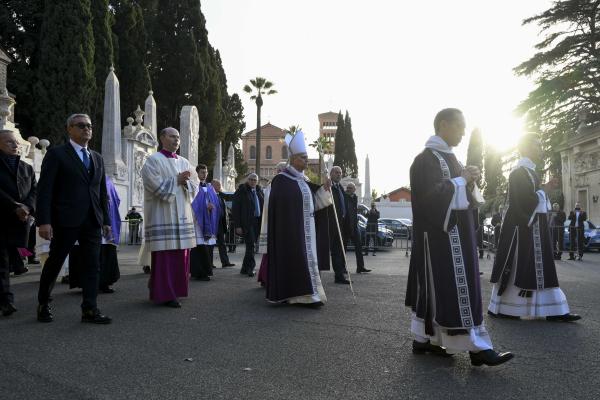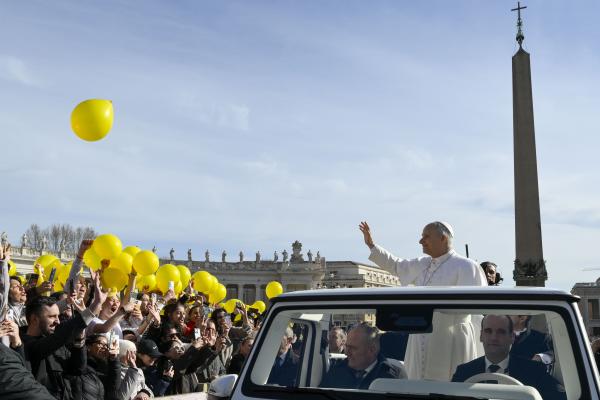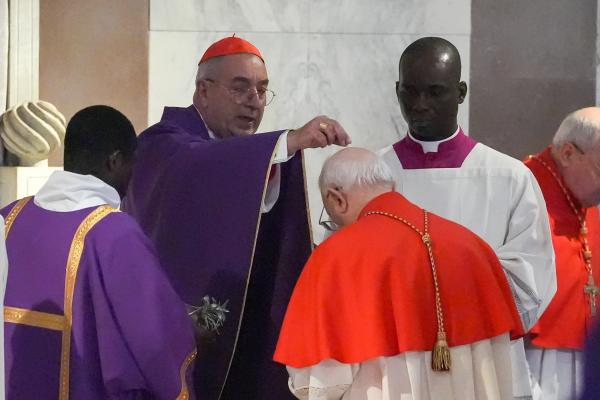Parish priests are lifeline to church's mission, cardinal says
Cardinal Wilton D. Gregory of Washington was in Rome to receive the Rector's Award at the Pontifical North American College April 11. He sat down with Catholic News Service and talked about the importance of parish priests in the church's synodal journey.
 Carol Glatz
Carol Glatz
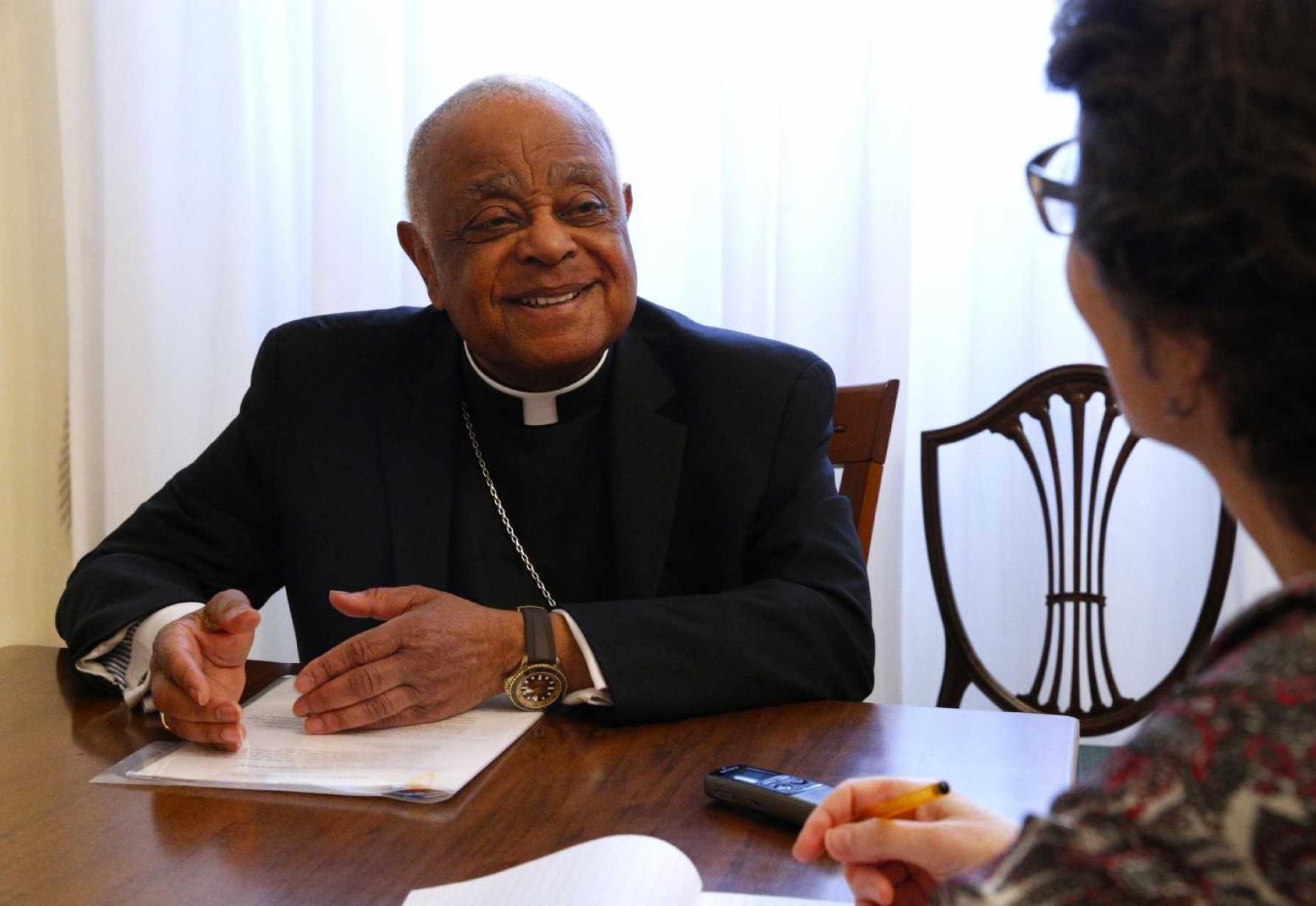
Cardinal Wilton D. Gregory of Washington speaks with Catholic News Service during an interview at the Pontifical North American College in Rome April 10, 2024. (CNS photo/Justin McLellan)
ROME (CNS) -- The success of the Synod of Bishops on synodality will much depend on also including parish priests in the process, said Cardinal Wilton D. Gregory of Washington.
Of the more than 360 bishops, religious and laypeople who participated in the first assembly at the Vatican last October, the small number who were ordained priests "were scholars, missionaries (or) they were engaged in leadership in religious communities," he said.
"Not that those other participants weren't generous and insightful," he said, but in his 40 years as a bishop, his experience has been that "a number of people may know who the bishop is, they all know who the pastor is."
The parish priest is the church's "point of contact and if we lose contact with our people through their priests, it disables the mission of the church," he told Catholic News Service April 10 at the Pontifical North American College in Rome, where he was to receive the annual Rector's Award April 11.
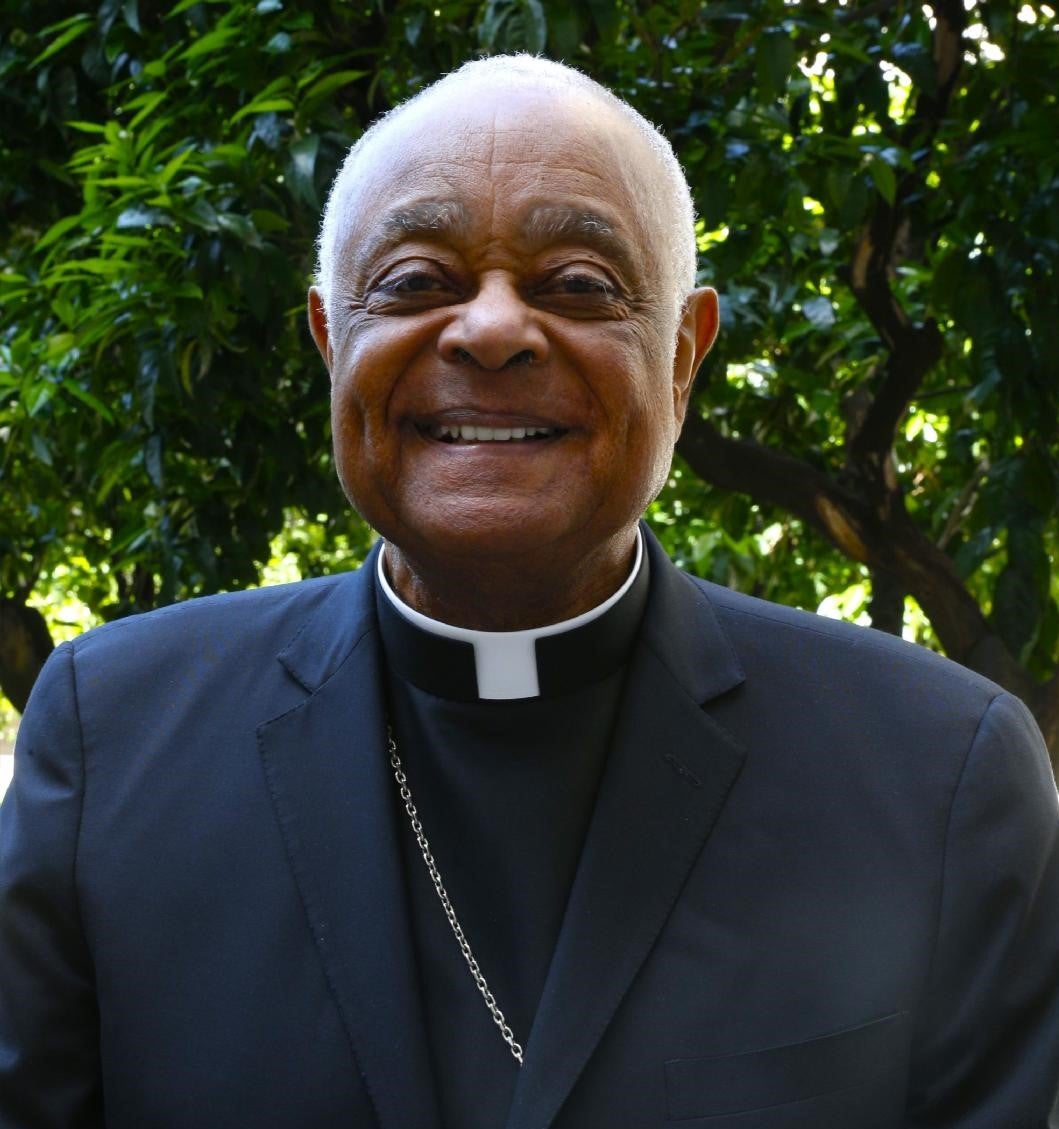
Cardinal Gregory had served as an auxiliary bishop of Chicago before leading the Diocese of Belleville, Illinois, and then the Archdiocese of Atlanta; he was named archbishop of Washington in 2019 and then elevated to the College of Cardinals the next year.
Pope Francis personally invited the 76-year-old native of Chicago to attend the synod on synodality in Rome.
"There was a lack of parish priests present" at the first assembly, Cardinal Gregory said, noting the importance of the upcoming gathering of 300 parish priests from all over the world to make their contribution to the ongoing synod process by sharing their experiences of parish life.
Parish priests are the ones who "serve the folks in the pew, Sunday after Sunday after Sunday," he said. The gathering of parish priests, which will be held April 28-May 2 outside of Rome, was needed "because if the synod is going to be a success, it really needs to keep its roots in the Sunday pew."
The priests, selected by bishops' conferences and Eastern Catholic churches, also will have the chance to dialogue with Pope Francis as part of responding to the first assembly's report requesting more active involvement of deacons, priests and bishops in the synodal process.
Because there will only be one to four priests representing each bishops' conference and Eastern-rite Catholic church, Cardinal Gregory said it would be important for the priest delegates to "use media to pass on what they did, what they heard, what they said."
"After all, 300 priests is a good delegation, but it's a small representation of the total number of priests who are engaged directly in pastoral ministry," he said.
Just as priests are being asked to "follow up more effectively with their parishioners and learn how to listen to and to learn from criticism and also support" as part of the synodal process, he said, bishops, too, should be showing their support of their priests, even in the simplest of ways.
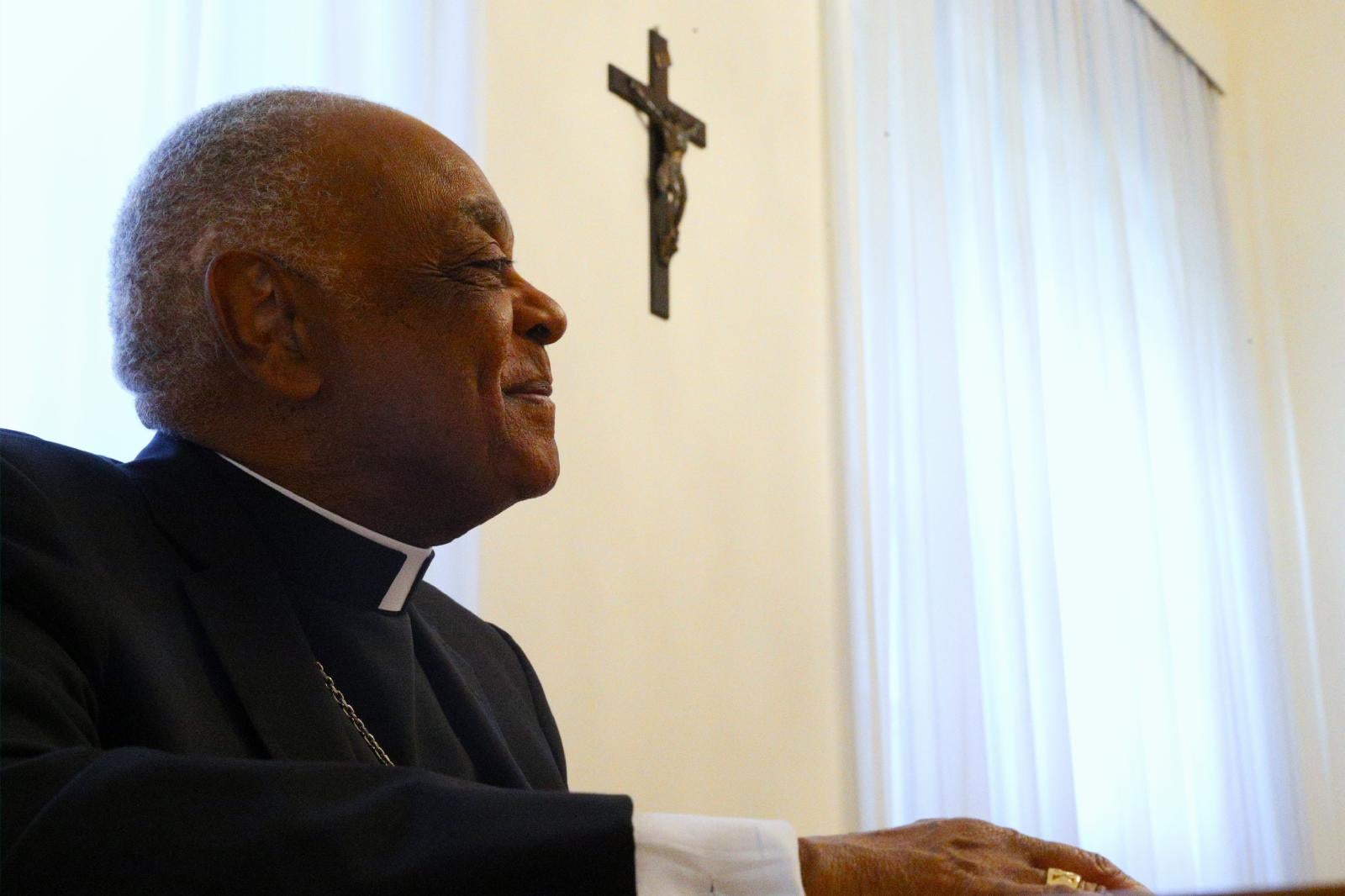
"Long before the synod and in every diocese that I've served in," he said, he has always shared messages and comments he receives complimenting one of his priests for something they did.
"I always send that complimentary letter to the priest himself, along with my letter of thanks to the individual who thought enough of a pastor to say something nice," he said.
"That builds a relationship with the priest and the bishop that says, 'you know, he contacts me not necessarily because I've done something wrong, but because I've done something right.' And that's very important. Our guys need to know that the bishop is grateful," he said.
The success of the synod, Cardinal Gregory said, will be seen with "an increase in the contact that people, ordinary people, the faithful of God, have with their priests," their bishop and with the pope. Success will be recognizing that the pope "is not an individual who governs the church simply from the desk of the papal apartment" and that the bishop and pastor are not leaders who simply manage or direct activities from afar.
"To have a successful synod outcome, it has to tighten the bonds that unite us, even going into those areas where most people had not been before. And unfortunately, sometimes where bishops haven't been before, that is, in the midst of their flock," he said.
"Isn't that one of Pope Francis' favorite early terms, the smell of the sheep?" the cardinal asked. "You've got to have the smell of the sheep."

